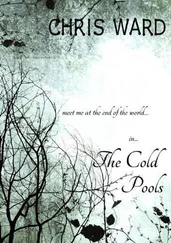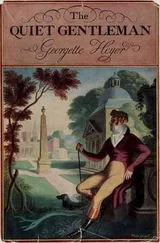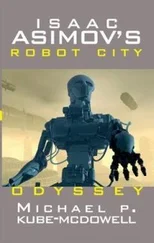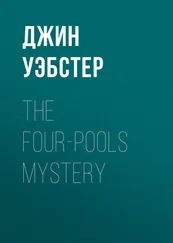“Lila, where is my father?” Christopher asked suddenly.
“He was shot by Mikhail Dryke on Sunday morning,” Lila said. “I infer that he is dead.”
With a cry of anguish, Christopher vaulted out of the chair and lunged at Dryke. The older man turned the charge aside easily, spinning away and giving Christopher a shove that carried him hard into the wall. By the time Christopher picked himself up and turned, he was facing five men and three weapons.
“Fagging bastard. Where is he? What did you do with him?”
“Buried him in the earth,” said Dryke. “I would tell you where, but that could prove awkward. I’m sorry.” He turned to one of the newcomers. “Tell Ramond I want the rest of the house files wormed out and this AIP reset. Now.”
The man nodded and left, and Dryke turned back to Christopher. “I don’t know that I believe what you told Donald. Even if I did, I don’t know how much sympathy I’d have left for you. You’ll understand that if you have any idea of the grief that Jeremiah caused.
“I do know I don’t trust you. I can’t. If it was my choice, you’d be going with us, and disappearing, at least until Memphis sails. But it isn’t my choice this time, and my orders are to move you out and cut you loose,” he said. “Lucky you.”
He stepped closer. “But I’ll warn you right now, don’t come near Allied property, or anyone in the Project. I don’t think I even want to hear that you’re back in Houston. That would put thoughts in my head that you don’t want me to think.
“Your resignation will be final in ten days—thank you for that, it’s tidier. You’ll even get one more check, I suspect. But your passes, codes, and credits are dead as of now. You can send someone to pick up your car.”
They kept him waiting in the bedroom while they finished their work. When the only noises Christopher could hear were outside the house—voices, the banging of equipment being loaded, the whistle of lifters—he opened the door and found himself alone.
He walked through the silent house slowly and reached the front window in time to watch the last vehicle, the silver van, clear the scorch pad and disappear over the treetops. He stood at the window for a long time, though there was nothing more to see. His body jangled with an impotent fury. They were gone, and he could not touch them.
And his father was dead, and he did not know how to feel.
CHAPTER 26
—AAU—
“I must walk carefully.”
Christopher could not stay in the house. It was too uncomfortable, too jarringly wrong, to be in his father’s space and not feel his father’s presence.
Even the characteristic smell of the house—part aromatic cedar from the closets, a hint of sesame oil from the kitchen, his father’s soaps from the bath, the char of burnt wood from the fireplace—had been upset by the cleaning. It smelled now of alcohol and cleanser, and another faint chemical scent—the strongest in the kitchen—which he could not define.
Heedless of the temperature outside, Christopher went through the rooms opening all the movable windows and both doors, changing the blowers at the top of each dome to exhaust. Then he left the house behind and walked into the forest, his fists buried deep in the pockets of a jacket borrowed from his father’s closet.
For a time, he ordered himself not to think, allowing the mountain to wrap itself around him. The air was damp and cool, the ground soggy underfoot. There was a steady patter as drops of water fell from the tree crowns high overhead to the carpet of trillium and humus. A few birds called lonely sounds from the branches far above him. Now and again, his approach flushed a nimble-quick chipmunk from a tangle of ferns and brush.
The farther he went into the forest, the more his steps slowed. His purposeful passage, tramping a line through the wildness, became a quieter communion. He threaded his way between the gray-white trunks almost as a ghost.
Where did they take you, Father?
He had no thought of searching for the grave, no hope that even a forensic expert would find it. Dryke had undoubtedly been too thorough for that. Christopher’s sense of futility was such that he had not even called the police. What could they do with no body, no witness, no evidence?
Even Lila had been silenced, as Christopher had learned when he finally tore himself away from the window.
“Lila? Do you know where they put my father’s body?”
“Would the speaker please identify himself?”
“This is Christopher. Christopher McCutcheon.”
“Thank you, Christopher. To use verbal command mode, I will need a sample of your normal speech. Would you please talk to me about your day?”
Vainly hoping that some part of Lila’s customization had been missed by Dryke’s wormers, Christopher had invented for Lila a more pleasant morning than he had lived.
“Thank you. I have a sufficient sample now. Will you be the primary user of this AIP?”
“No,” he said. “The primary user is my father.”
“Thank you,” Lila said, and then stole even that faint hope away. “What is your father’s name?”
No, involving the police was pointless or worse. What did he need them to do? He already knew enough of what had happened, exactly who had done it, perhaps even a piece of why. But his testimony was valueless. He knew nothing firsthand. It was only a story.
A wild story. What would a thoughtful prosecutor make of such a tale from a distraught young man whose life had been disintegrating around him? If that prosecutor talked to Meyfarth—and, of course, he would—he might quite reasonably decide that the most likely suspect was Christopher himself.
The best he could hope for was that they would believe him enough to declare his father missing. But what was the value in that? Only his father’s attorneys and accountants would care, and nothing seemed less important at the moment than matters of business and family finance.
Justice? Punishment? Revenge? Words of primal myth and melodrama, the classic passions of the wronged, and yet they, too, seemed not to matter much to Christopher. Perhaps it was too soon, the shock too fresh, the loss too new. He had not even cried.
Or perhaps the passions and tears both were knotted in the confusion of unsettled issues. He had been cheated of his own confrontation with William McCutcheon, robbed of a reckoning over the lies which lay between them. Lies which now appeared to be only the lesser part of the deception his father had worked.
A fat drop of water falling from above hit the back of Christopher’s neck and made a cold trail under his collar to the vicinity of his shoulder blades. Christopher shivered, suddenly realized that he was hunchbacked against the chill, the jacket nearly soaked through. He turned back, guessing at the direction. When he crossed paths with old Johnson Road a few minutes later, he allowed it to lead him back the long, easy way.
The truth was that he did not understand well enough who his father had been—whether William McCutcheon had, in fact, been murdered, or had fallen in what amounted to a duel. Christopher did not know if it was right to love and mourn him, or to hate and curse him. He still did not know how to feel.
“Hello, Christopher,” Lila said as Christopher entered.
The house was barely warmer than the woods, and Christopher hastened to close the windows. “Hello, Lila.”
“I am glad to see you again, Christopher. Can you tell me if something has happened to Mr. McCutcheon?”
That froze Christopher in midstep. “Mr. McCutcheon?”
“William McCutcheon, your father. The owner of this house.”
Christopher took several uncertain steps toward the office. “What’s going on here, Lila? When I left, you were as dumb as a toaster.”
Читать дальше
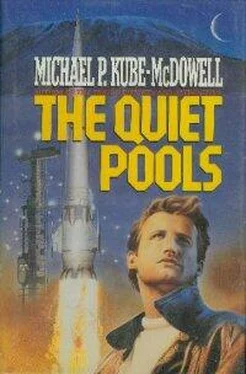
![Nick Cracknell - The Quiet Apocalypse [= Island Zero]](/books/28041/nick-cracknell-the-quiet-apocalypse-island-zero-thumb.webp)



